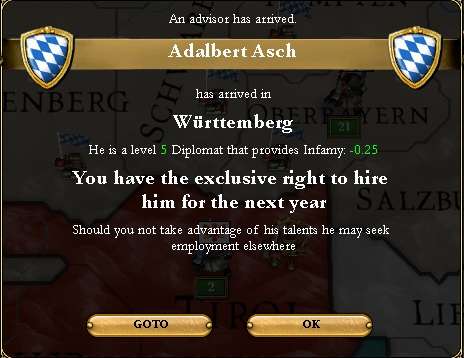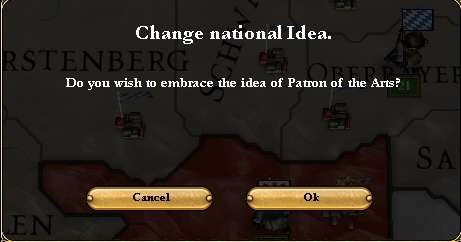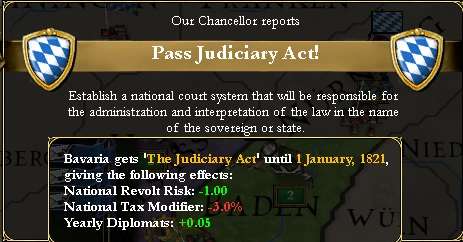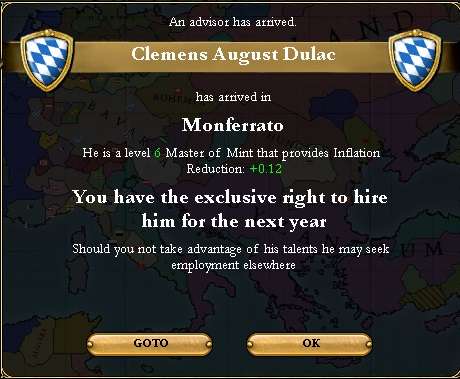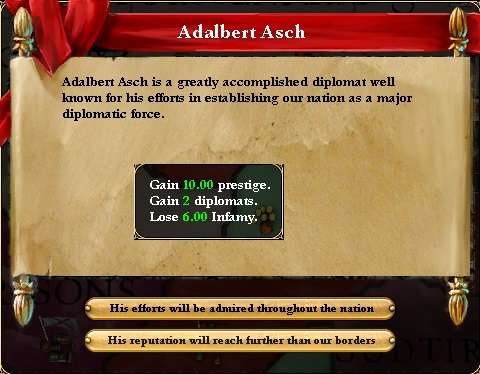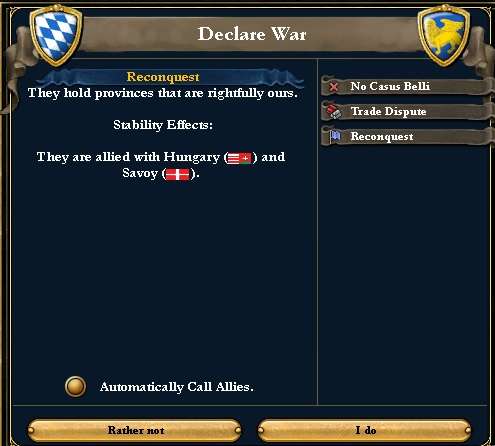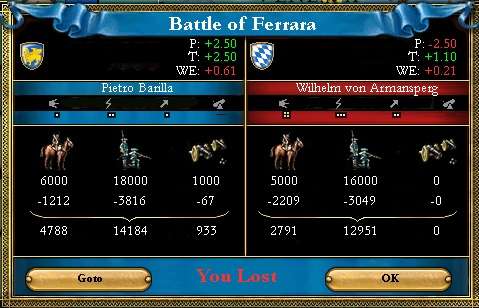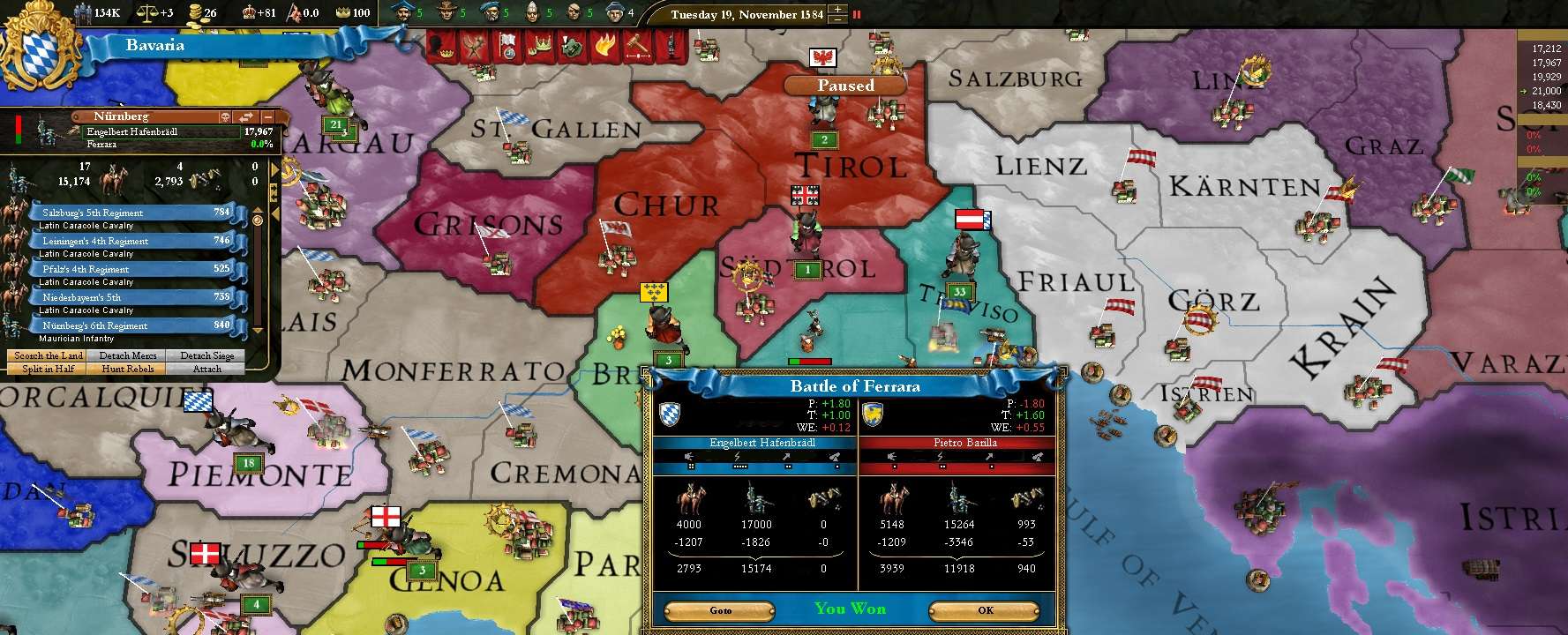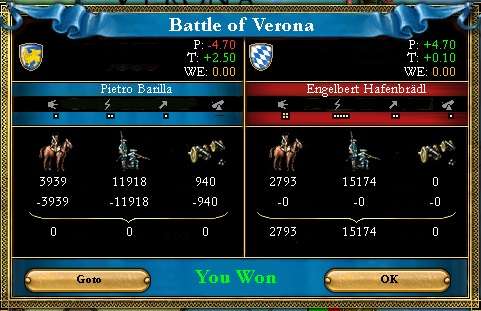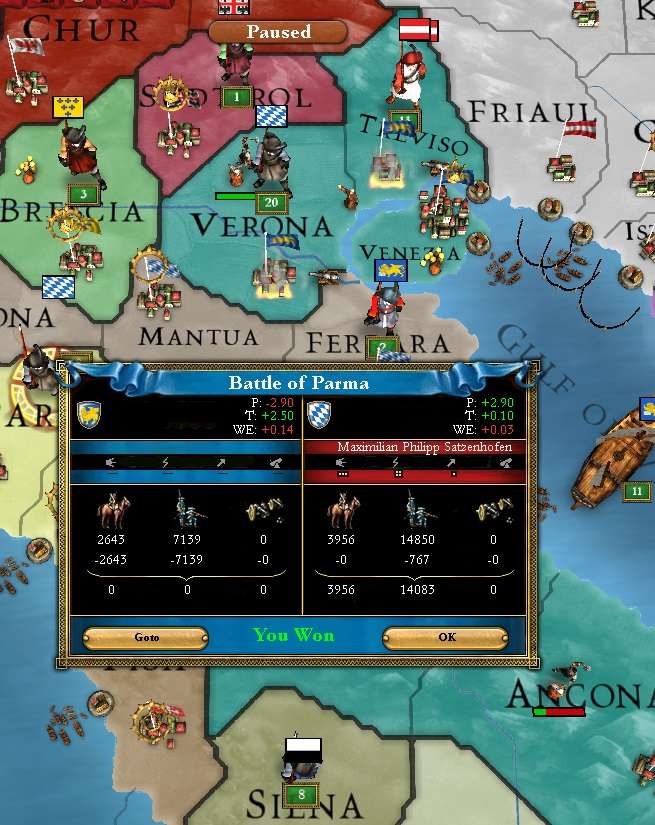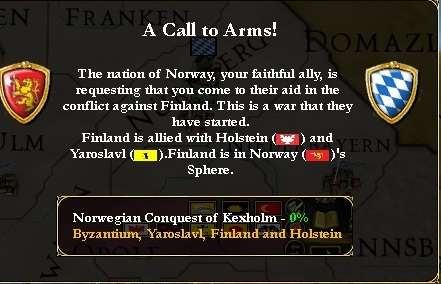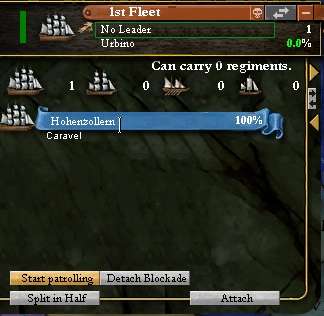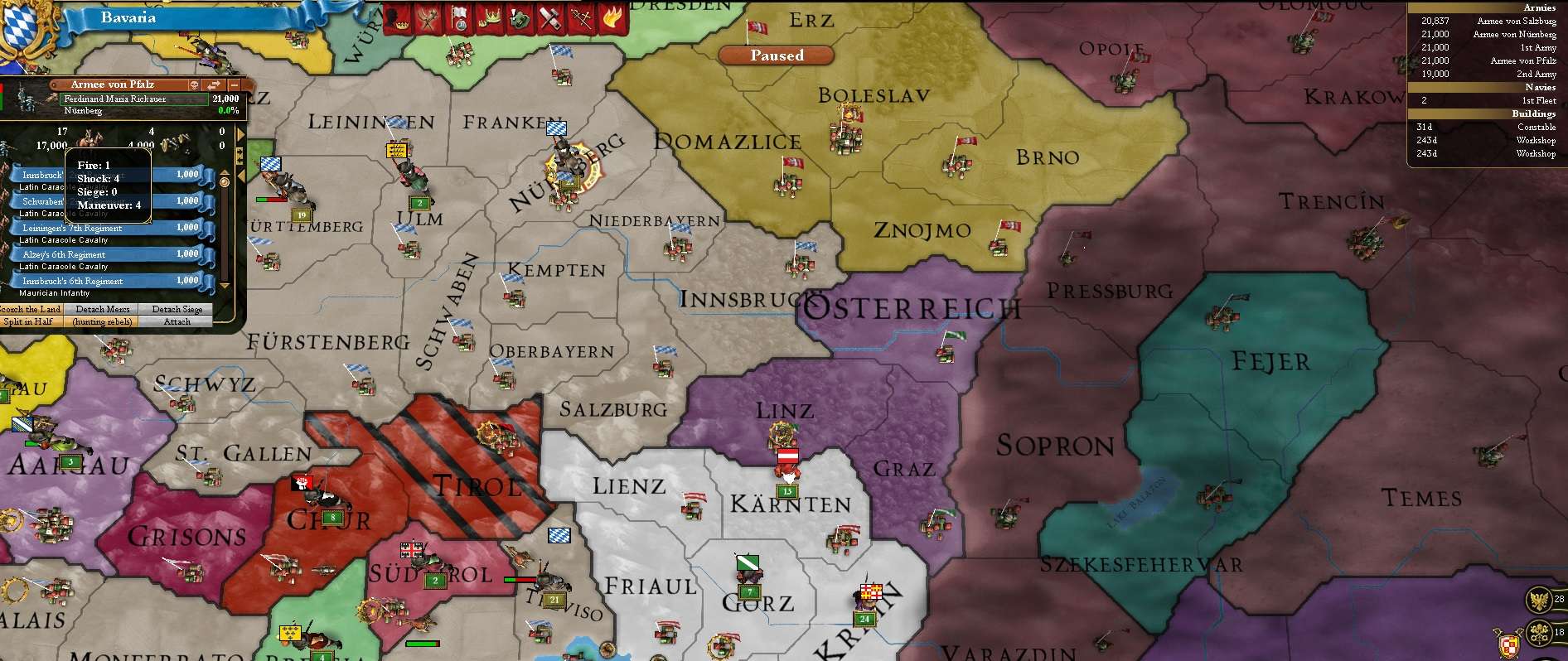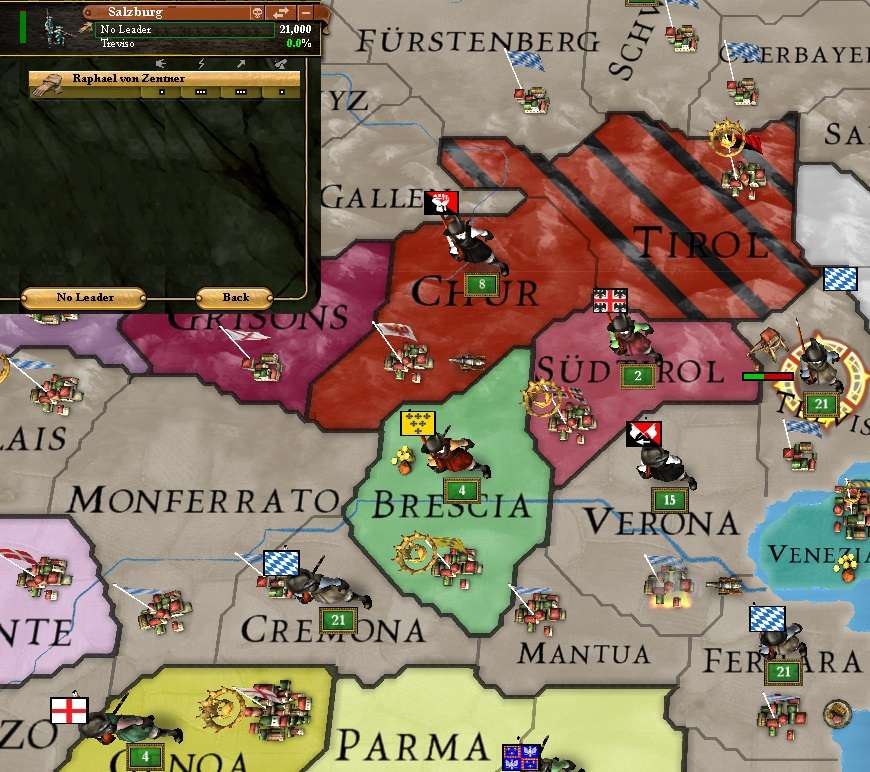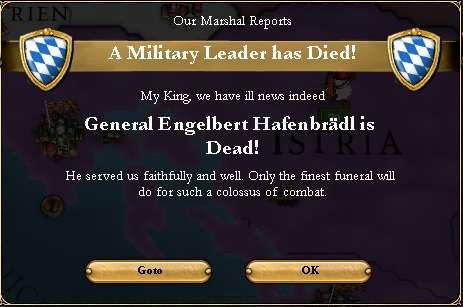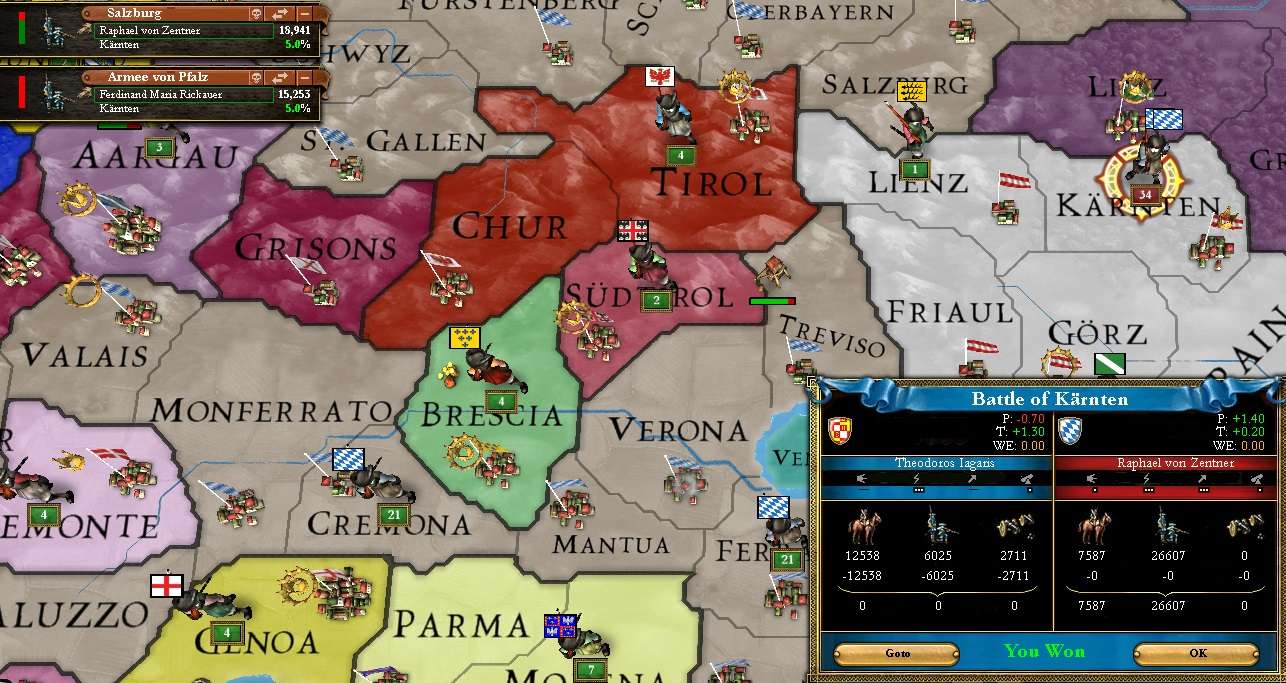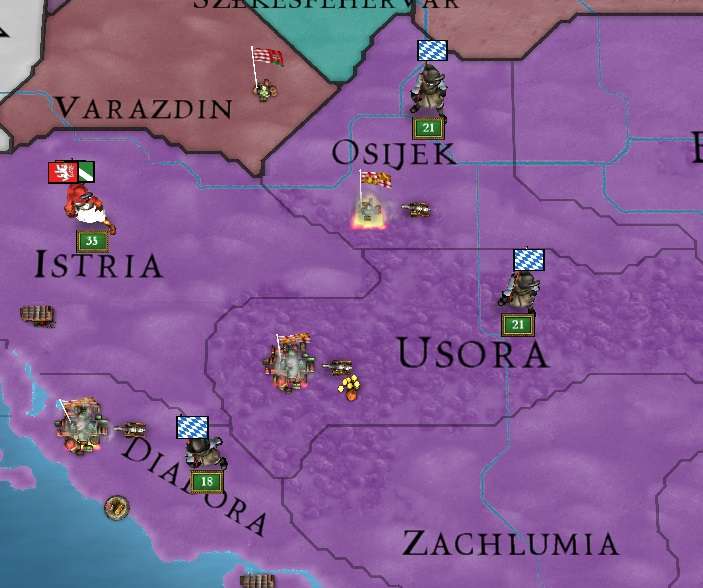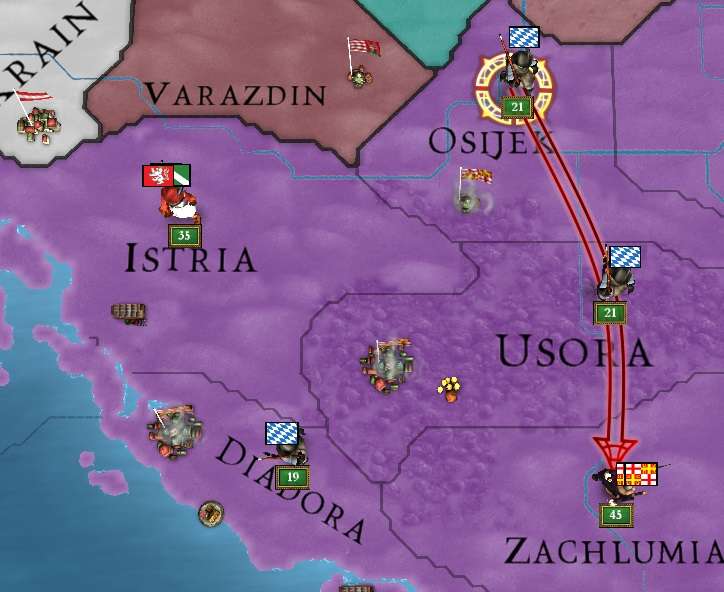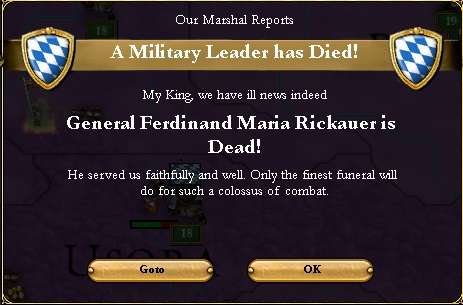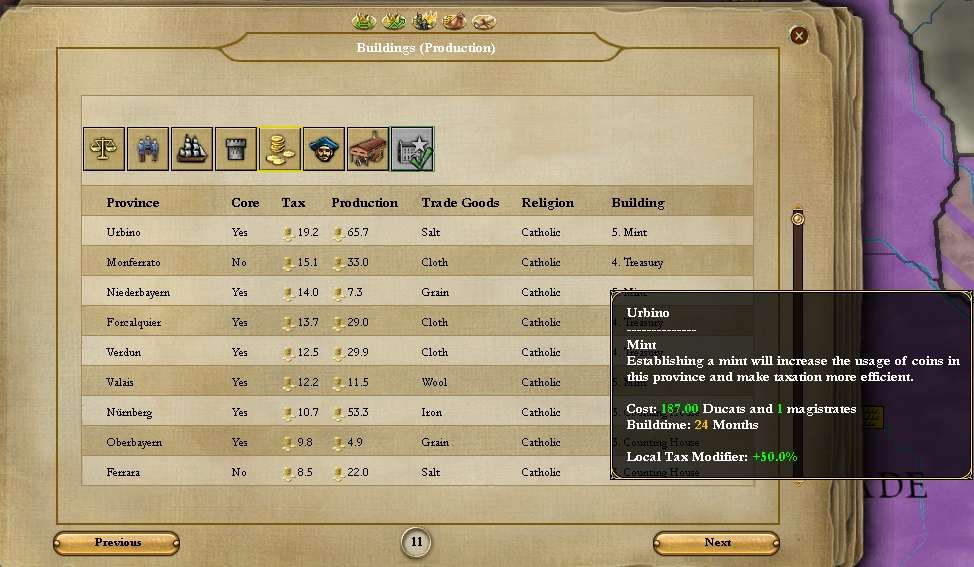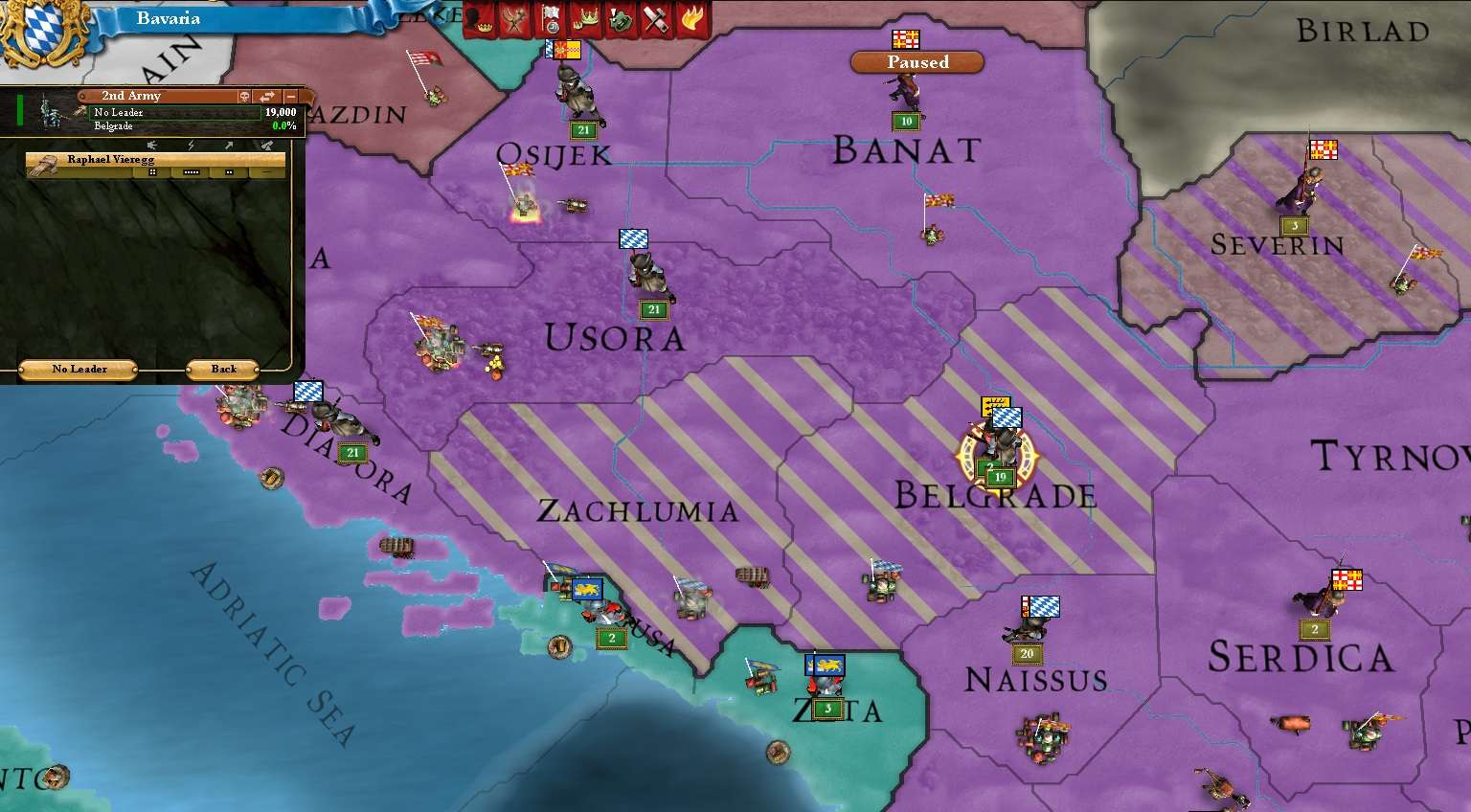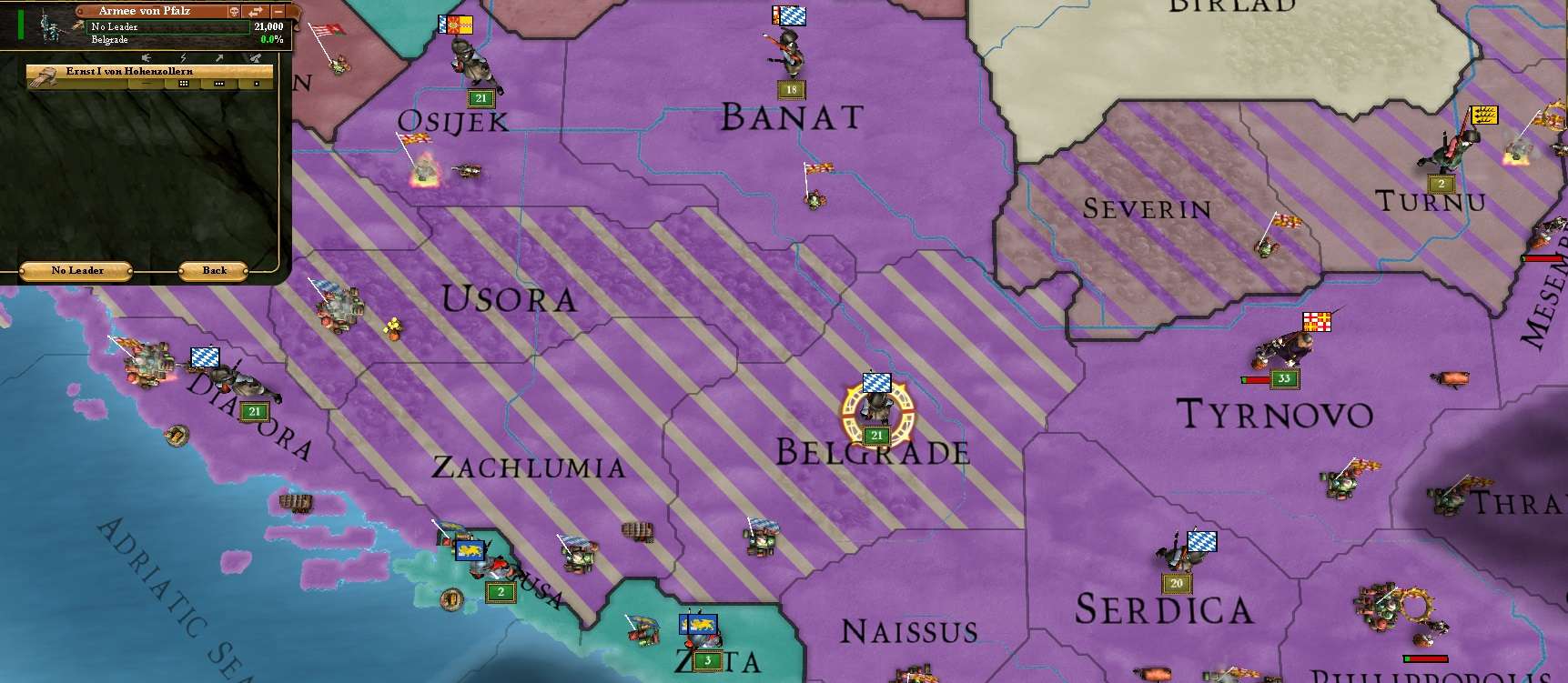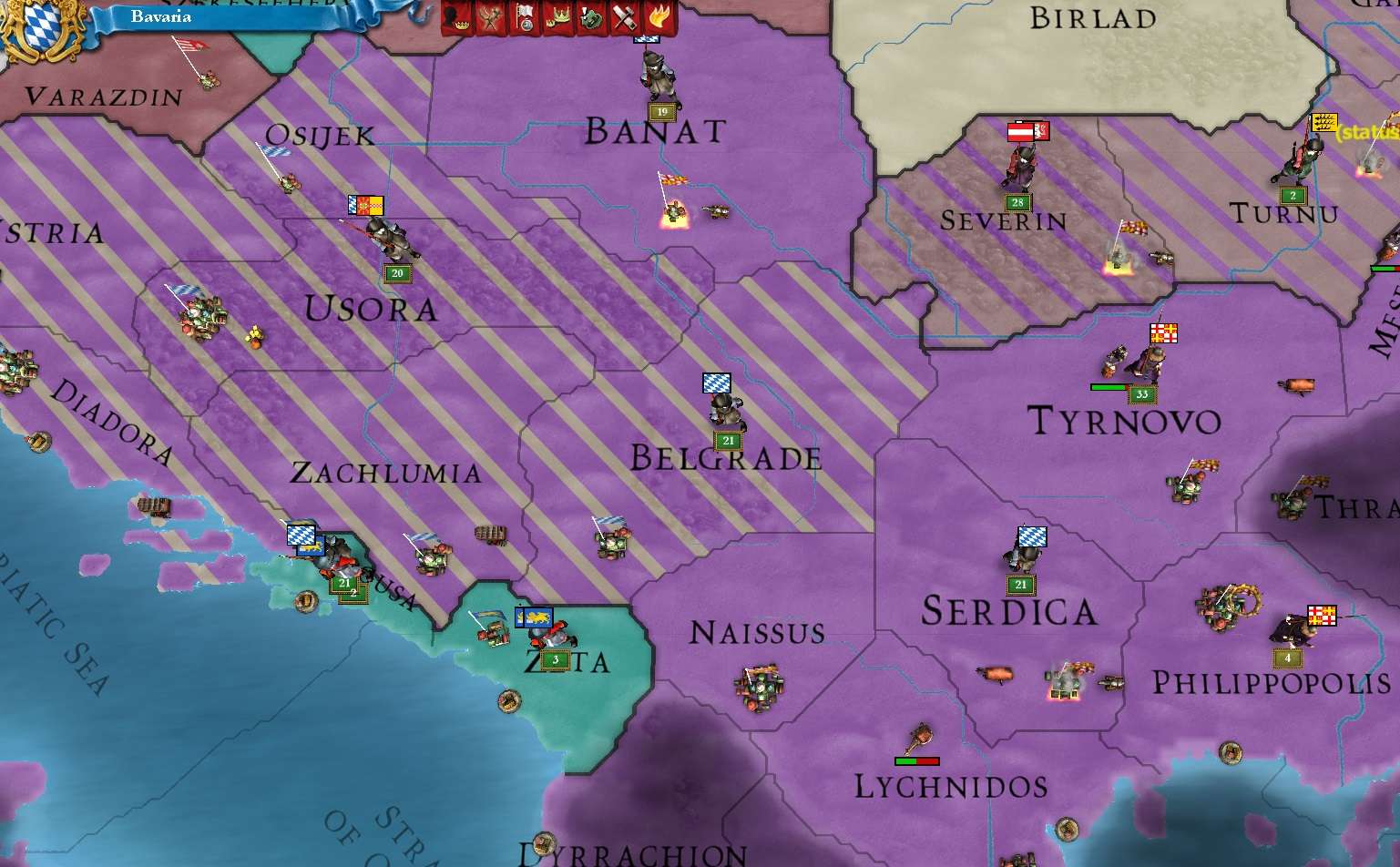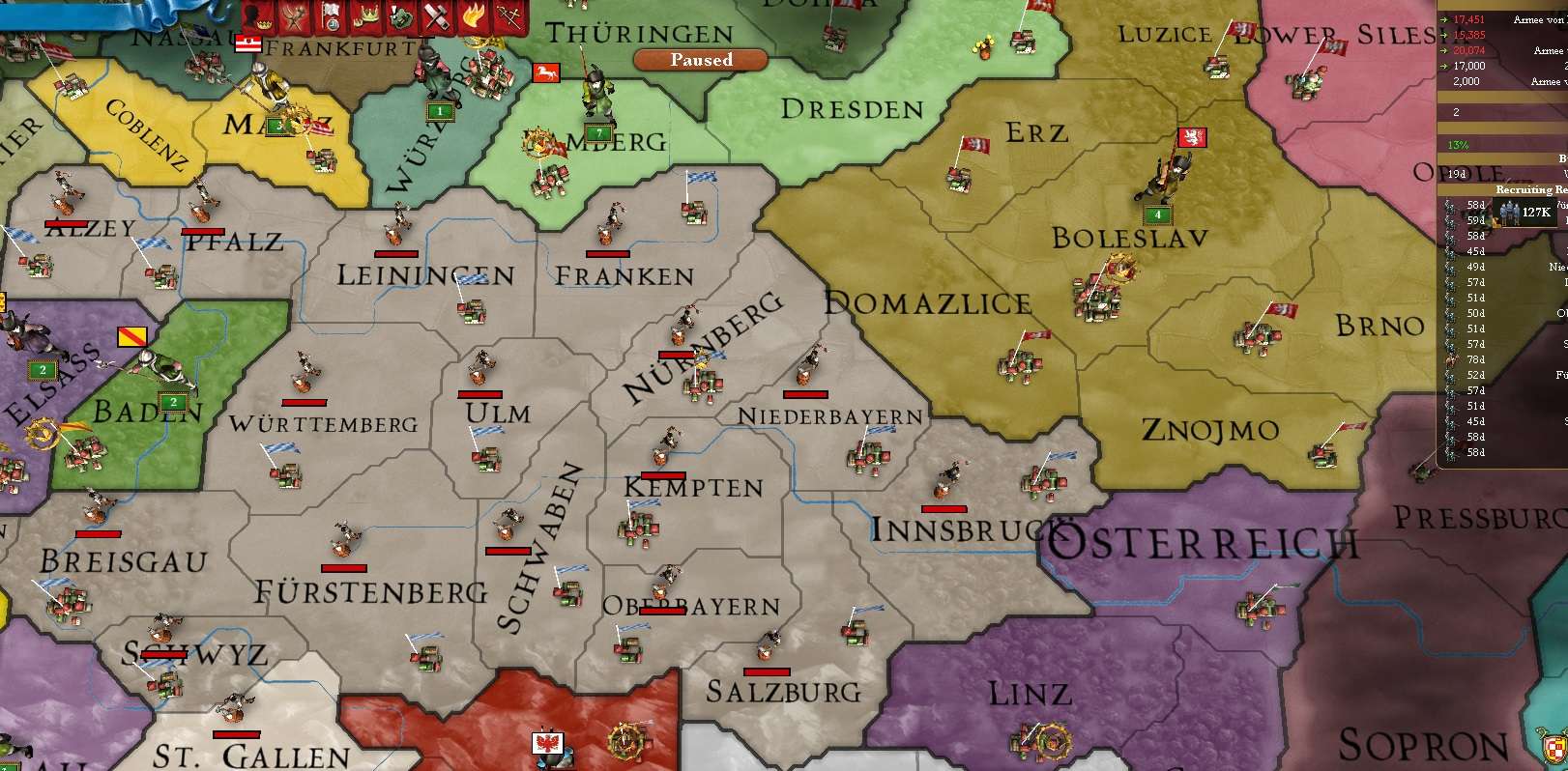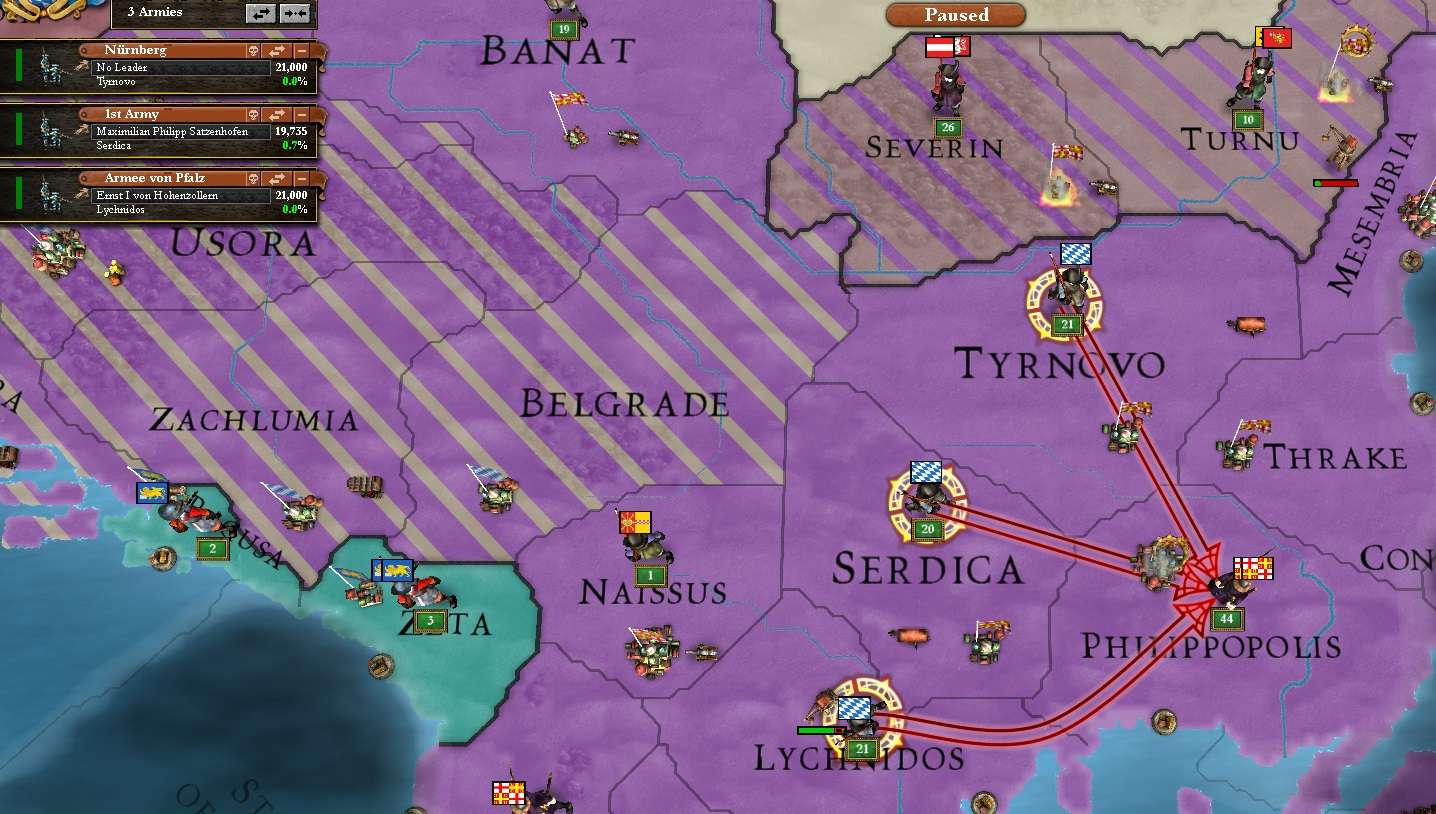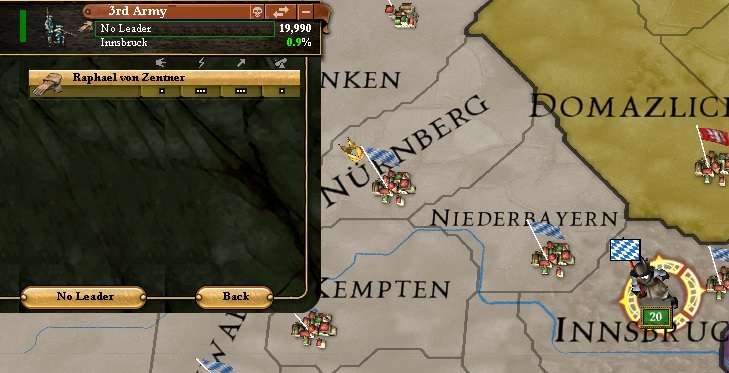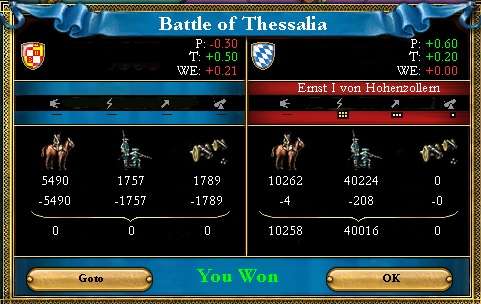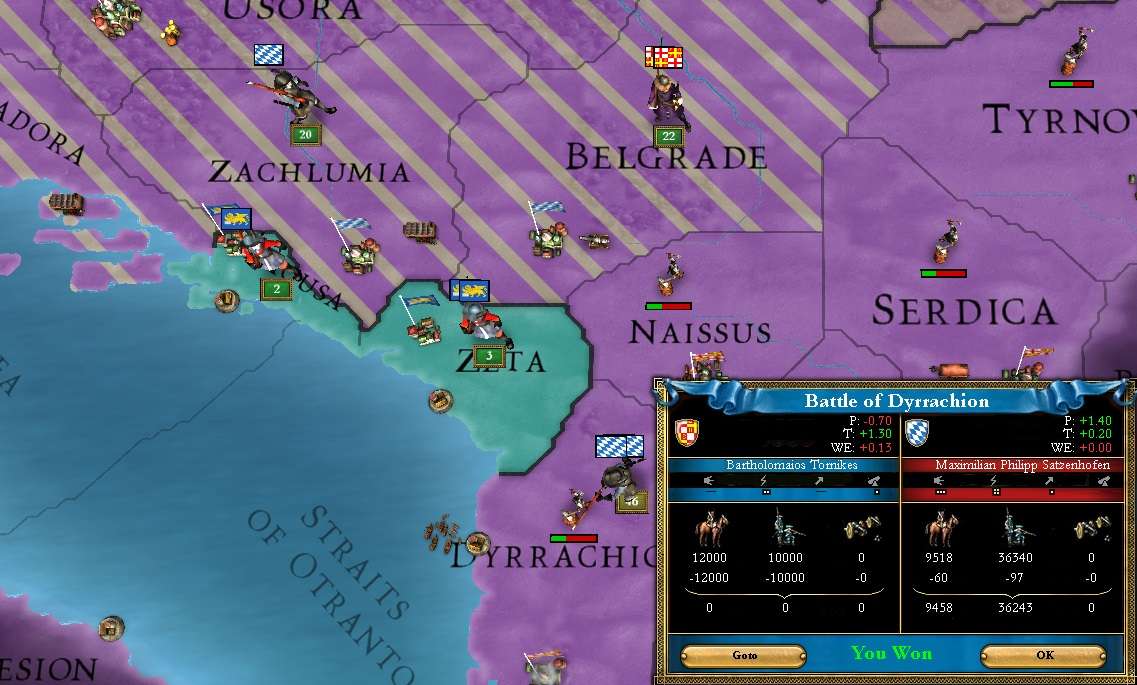Chapter 18: The rise and fall of regencies
6 August 1578, Württemburg
While his older brother Wilhelm got the family title -- Graf von Niederbayern, it was Adalbert who got the important role in the
Königsrat: he was named the newest Chancellor of Bayern.
Adalbert was certainly surprised at his promotion. After all, Adolph von Ungern had been patiently waiting for his opportunity, an opportunity which never came. Adolph was too loyal to Clemens to put up with Dorothea as Regent, and resigned his post almost immediately upon her appointment as Regent. Of course, what Dorothea didn't know was that Adalbert was an even worse choice in terms of loyalty, for Adalbert considered Ulrich von Hohenzollern rightful König von Bayern, and knew that many others did too. Ulrich had employed Adalbert as a spy, and when Adalbert's ailing mother died in April, Adalbert was the perfect fit.
The new Chancellor had no idea what precisely Ulrich planned. Ulrich's wife could not conceive a child, or so the doctors claimed, and that meant that even if Ulrich could take over the kingdom, there would be no heir without Ulrich divorcing Cecilia Drake. Adalbert had only met Ulrich's wife once, but knew he never wanted to meet her again. All he did know was that he was supposed to serve the Empire to the best of his ability and, when he received instructions, to carry out a critical task.
28 November 1579, Nürnberg
Alarice von Hohenzollern smiled at her husband as they attended the formal coronation of Ernst as König. Her husband was a handsome young soldier named Javier de la Rosa. The two had married in early 1577, and just in time too: Alarice was pregnant. Javier, native of Burgos, had travelled to Bayern to seek his fortune with the Bavarian army, the single institution that had provided even the slightest resistance to French imperialism. Javier had led raid after raid on French positions, but to no avail. He was something of a legendary outlaw in his homeland, but all the notoriety he could muster proved meaningless against the mighty French war machine. His latest attempt to topple the French was to ally with Bayern; that he truly and deeply loved Alarice was a wonderful coincidence. He had consented to marry her matrimonially so that their children would bear the Hohenzollern name (de la Rosa was in no danger of dying out -- Javier had six brothers, five of whom had children), and now their son was Prinz von Böhmen.
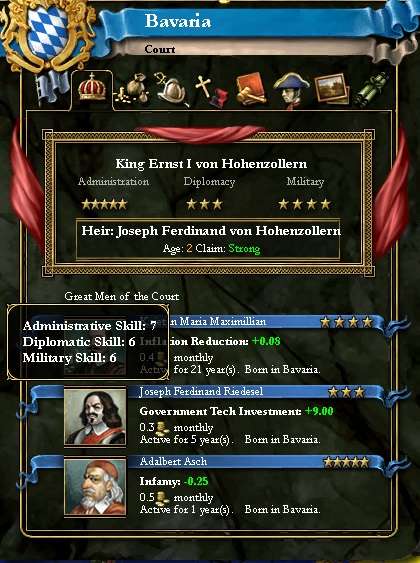
For all of her scheming to become Regent, Dorothea had failed to secure a suitable husband, and with no husband, she could never be accepted as Königin in her own right. With no husband, she could produce no more children, and Ernst I was too young to have children as of yet. In fact, Ernst remained unmarried, to the realm's disconcernation. Marrying Alarice was a long shot, even before her marriage, since she and Ernst were half-siblings. Dorothea could either make Ulrich heir to the throne or make the two year old Joseph heir; she chose the latter. That only eliminated the problem later on; she was forced to find a new Regent for young Joseph, and Alarice's husband was unacceptable as a Spaniard. She chose the least horrible candidate: Adolph von Ungern. True, he had no royal blood, but he was also far better than naming either Ulrich von Hohenzollern or Louisa von Hohenzollern, who were both direct blood relatives of the new Prinz.
Dorothea had won a couple of minor concessions, and at the very least ensured that her name would not be forgotten. She founded an Imperial art academy in her birthplace of Valois, Aquelia, and pledged the support of Hohenzollerns to all worthy artists.
The new Dorothea von Hohenzollern Academy was just her most visible triumph. Much more dangerously, she decreed a Bavarian court system, and that only lawyers of noble birth could serve as judges there.
Her objective had been to secure alliances with the noble families her husband had so prominently displaced in order to get her named Königin. That backfired, and now the nobles had a way to exert influence over the kingdom. Her power play had completely failed, but there was one bright side: her loving and loyal son Ernst ruled in Bayern. If he could produce children of his own, she could at least permanently shut out the "bastardized" line of Hohenzollerns that arose from Louisa von Ulrich.
3 September 1583, Dublin, Ireland
Ulrich von Hohenzollern found himself in an impossible situation. If he pressed his claim to the throne now, he wouldn't be only unseating Ernst; he'd been unseating his own nephew. He wished Alarice and her husband every success, and hoped that Joseph would be a fine König someday. But he also had his mother to consider, as well as himself. Technically, Ulrich was still Archbishop von Nürnberg, and could thus return to take up his position whenever he liked. He began to recognize that marrying Cecilia was a mistake, and not just because she could not bear children. Cecilia had an unhealthy desire to see open civil war within the kingdom of Bayern, and that was something that Ulrich found repulsive. He could not understand why she loathed his homeland so much, but she did. Whenever he asked, she simply glared at him.
It turned out that the "powerful ally" that the Elector of Ireland had promised was Norway, and the King of Norway was focused entirely on wars in the New World.
Ernst answered the call, but wisely committed no troops or money to the effort. Ulrich himself, with little to do in Ireland, served with distinction in the war with the Shawnee, Creek and Cherokee. In gratitude, the King of Norway named Ulrich Duke of Apalachee, but Ulrich had no desire to travel across the Atlantic when his heart remained in Europe. Adalbert Asch had been feeding information to Ulrich, but Ernst was doing a commendable job as König and the opportunity to return in triumph no longer remained. That left one option.
Returning in secret.
Clemens August Dulac was a brilliant financier who had worker for an Irish shipping company for the past fifteen years. Ernst had selected him as the new Steward when Kajetan, the old Steward, died of a heart attack. Clemens was certainly qualified for the job, but he was also a very close friend to Ulrich; he was named after Ulrich's father, after all, the man who appointed Anton Dulac as Steward. The plan was simple: Ulrich would travel along with Clemens as his bodyguard. Only when he reached Nürnberg would he reveal his identity and see what options were open to him. Ulrich studied the map in front of him carefully.
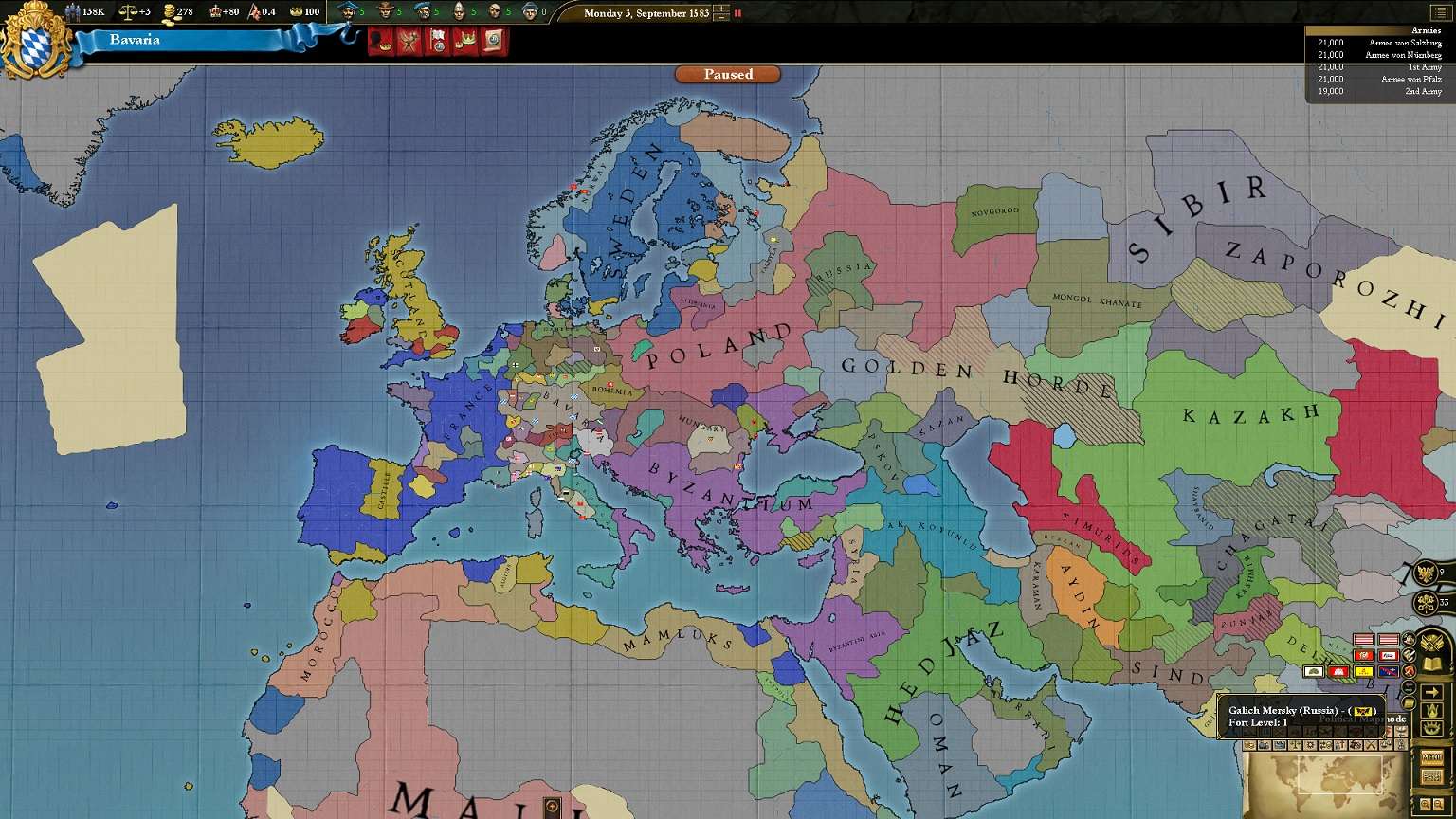
Assuming he wanted to overthrow Ernst, Ulrich needed an ally. Poland was a possibility, but the King of Poland was too busy with his wars with the Golden Horde in the east. Hungary was too weak. Venice and France hated Ulrich. That left two possibilities: Byzantium and Sweden. Sweden had the fleet; Byzantium, the army. The question was, what would they demand of Ulrich in exchange for their support? More importantly, was it a price he was willing to pay?
1 September 1584, Oberbayern
Javier de la Rosa, as the father of the Prinz von Böhmen, was given a seat at the
Königsrat. Dorothea died in 1580, followed by Adolph von Ungern the next year. That deprived his son of a regent while simultaneously removing the sole obstacle to the reintegration of his brother-in-law into the politics of Bayern. Ulrich was named Prinz-Regent the day after Adolph's death. Javier planned for young Joseph to learn from the experienced and intelligent Ulrich while Ernst guided the kingdom, becoming more powerful and more centralized every day. To formally cement the bonds between de la Rosa and Hohenzollern, Ulrich was married to Javier's sister Carmen. (Cecilia Drake had disappeared shortly after Ulrich's return; the Pope was only too happy to annul the marriage.) Louisa von Ulrich was also welcomed back to Bayern as she formally assumed the role of Contessa di Ferrara.
Yet Javier too was frustrated. His goal was to convince Ernst and the
Königsrat to strike at France. After all, Bayern still had the formal claim to Valenciennes. Instead, they were diverted by Venice, who had foolishly revealed that Urbino had formerly been Bavarian territory.
Adalbert Asch, the Chancellor, was in favor of the war, and as the most prestigious individual in Bayern, his decision stood and war declared days later.
Javier had no doubt that Bayern would prevail; Venice was alone and weak. However, that didn't mean it wasn't a distraction. His only hope was that the war would end quickly.
10 January 1587, Treviso
Ulrich von Hohenzollern, with Marshal Hafenbrädl in the field, stayed behind in Nürnberg to help Javier de la Rosa and Kaiser Ernst plan the war against Venice. Any hope of a quick war was dashed when General Armansperg ran directly into a Venetian ambush a few days after the war began.
The General himself was seriously injured in the battle and would die a few months later. The Marshal rapidly counterattacked, winning decisively over Venetian General Barilla.
With the Venetian army fleeing in disarray, Marshal Hafenbrädl ordered a hard pursuit; although the march was hard, it was very productive, and in a single battle, the Venetian army disappeared.
Yet despite Bavarian success in the battlefield, the Venetian fortresses put up extreme resistance. Attempts to bring forward more siege cannon were severely delayed by the lack of proper foundries. A second Venetian army met a brutal fate of its own at Parma, with the talented General Satzenhofen claiming the glory.
Venice's one truly loyal ally, Savoy, found itself overrun shortly afterwards, releasing Ferrara as an independent nation once again.
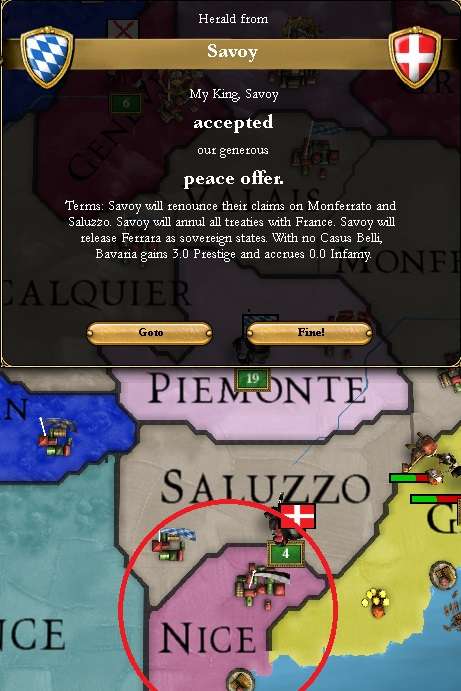
Again, in February of 1585, France was excommunicated; again, France suffered no serious trial. Javier de la Rosa swore, knowing that Bayern's golden opportunity to strike at France may have passed for good. Ulrich, impressed by Colonel Gumpenberg's brilliant defense of Rome against a small Venetian counterattack, promoted him to General. By the end of 1585, Hungary and Transylvania both sued for peace. While the remaining Venetian forts continued to hold out, isolated Venice simply could not prevail. Three more provinces were added to Bayern, and Marshal Hafenbrädl proclaimed the new Conte di Urbino. Treviso and Verona would be occupied by the Bavarian army until such time as they completely surrendered to Bavarian control. It was a glorious victory; there was no doubt about that. Three new ports were added to Bayern, and Venice itself completely surrounded by Bayern and Österreich. To commemorate the victory, the keel of the Bavarian caravel
Hohenzollern was laid down. Soon, the finest army in Europe would have at least the beginnings of a fleet.
31 January 1590, Constantinople
The Basileus could not, for the life of him, figure out why Cecilia Drake had been pushing him so hard to attack Bayern. The Germans were less than an afterthought; they were simply ignored. The Byzantines did have an Ambassador in Nürnberg, usually the biggest fanatic on the subject of beer that the Basileus could find; only the beer made Bavarian service tolerable. Accepting Drake into the Empire as a political exile was a calculated insult at the unimportance of Bayern. Almost entirely out of spite, the Basileus made Cecilia one of his Imperial concubines. She didn't seem to mind, and she was more talented than many of his other concubines. When he asked her how she had acquired such experience, she simply said "Long years." This puzzled the Basileus, who was easily twice Cecilia's age, but he didn't press the matter. However, he didn't let it rest either. He charged a scholar with historical research to discover who, precisely, Cecilia Drake was. In the meantime, most of his attention was taken up with managing his vast realms.
A courier interrupted the Basileus's daydreaming. "Emperor, the Ambassador from Finland is here. He insists he's been invaded by Norway."
The Basileus chuckled. "He really needs my help? Norway is hardly a threat to anyone."
"They have enlisted Bavaria's aid, Your Imperial Majesty."
The Basileus sat upright. His last contact with a Bavarian citizen was Admiral Asch, who had brought the
Hohenzollern for a visit to "demonstrate Bavaria's commitment to countering piracy."
"I see. Do we have any Bavarians in Byzantium right now?"
The courtier thought for a moment, then nodded. "Two, Your Imperial Majesty. Cecilia Drake --"
"Besides her, fool."
"-- and Louisa von Ulrich."
The Basileus thought for a moment. "Who is Louisa von Ulrich?"
"The grandmother of their Prinz, Sire. She is the mother of Ulrich and Alarice von Hohenzollern; Ulrich is their Archbishop while Alarice is the Prinz's mother."
Offhandedly, Basileus ordered Louisa's blinding. "That should show Bavaria that we do not take threats on Imperial allies lightly. Send for Cecilia Drake, too. I would get intelligence on her former home."
"Yes, Sire. It shall be done."
Before the Basileus could go to the war room to order a mustering of the army, a historian busily tugged at his arm. "What?"
"You had instructed me to research Cecilia Drake, Your Imperial Majesty."
"So? I've no time for such nonsense now."
"I have learned some terrifying secrets, secrets you would do well to listen to."
"You presume to order me around, scholar? I think not. Guards, seize this man and have him tortured and beaten. That should teach him to keep his mouth shut."
The historian was hauled away screaming. For the Basileus, his only concern was the war his Empire was now embroiled in.
The war with Byzantium (and friends) will take two updates, maybe three! Then we'll have another 50 year update, and we'll be at a point where I'll need to play some more.
We'll have a fairly easy contest -- my goal is to update Gunboat Diplomacy tomorrow then come back to this one Tuesday or Wednesday. Only one question:
1. Precisely how, in the game, did Byzantium get involved in this war? Ignore my RPing above.

Good luck!


